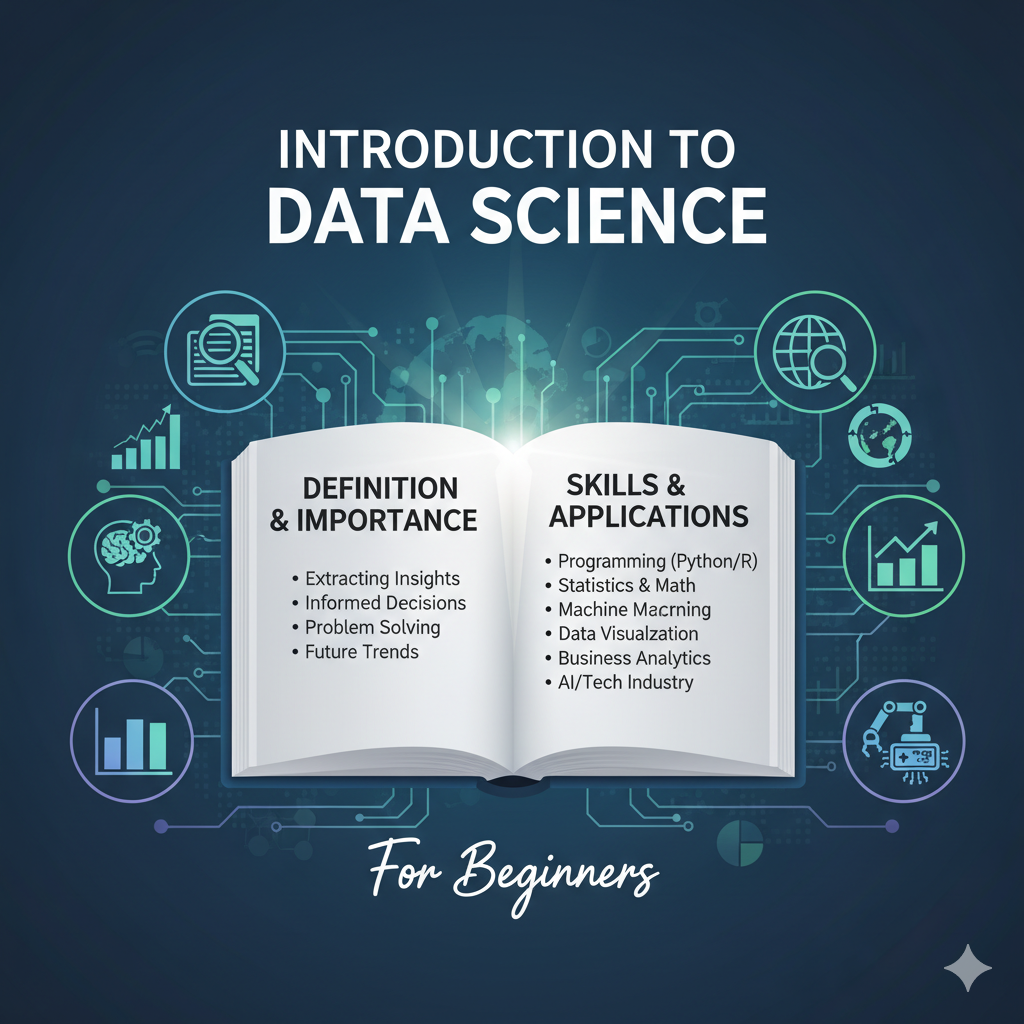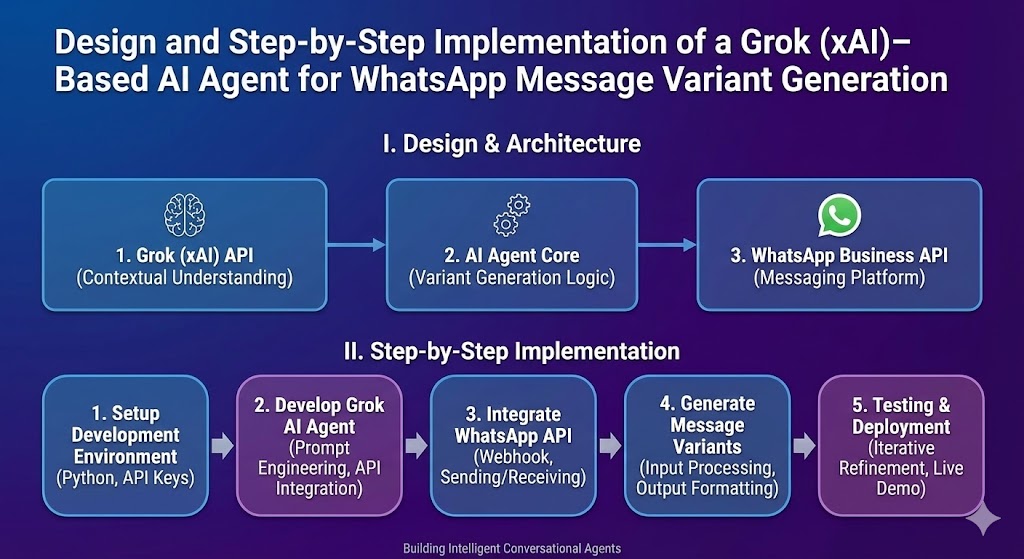Lecture – 1
Data Science has become one of the most in-demand and influential fields of the modern digital era. From personalized recommendations on Netflix to fraud detection in banking, Data Science powers countless real-world applications that shape everyday decisions. This article—part of our Data Science Lecture Series for students and aspiring data scientists—introduces the core concepts, importance, and career scope of Data Science in a simple and comprehensive way.
What is Data Science?
Data Science is a multidisciplinary field that focuses on extracting meaningful insights from raw data. It combines elements of statistics, mathematics, programming, machine learning, analytics, and domain expertise to solve complex problems and guide decision-making.
Simple Definition
Data Science is the practice of converting data into useful information and actionable insights.
Formal Definition
Data Science is an interdisciplinary domain that integrates statistical methods, computational tools, and machine learning algorithms to analyze structured and unstructured data and build predictive or decision-support models.
Why Does Data Science Matter?
Modern organizations generate massive amounts of data every second. However, data alone has no value unless it is processed, analyzed, and understood. This is where Data Science becomes essential.
Key Reasons Data Science Is Important
- Helps businesses make data-driven decisions
- Identifies trends and predicts future outcomes
- Improves customer experience
- Enhances operational efficiency
- Automates repetitive tasks using machine learning
- Supports innovation across industries
Real-World Examples
- Netflix recommends movies based on your watch history
- Amazon suggests products using purchase behavior
- Banks detect suspicious transactions with fraud detection models
- Hospitals predict patient risks using medical data
- E-commerce platforms segment customers using data analytics
Who Is a Data Scientist?
A Data Scientist is a professional who understands business challenges, analyzes data, builds predictive models, and converts insights into actionable solutions. They work at the intersection of technology, analytics, and strategy.
Core Responsibilities
- Collecting and preparing data
- Cleaning and transforming datasets
- Performing exploratory data analysis
- Building machine learning models
- Visualizing insights through dashboards
- Communicating findings to decision-makers
Essential Skills for Data Scientists
- Programming (Python/R)
- Statistics & probability
- Data cleaning and preprocessing
- Machine learning algorithms
- Data visualization tools (Tableau, Power BI)
- Critical thinking and problem-solving
- Strong communication skills
Data Science vs. Related Fields
Many beginners find it difficult to differentiate Data Science from similar fields. Here’s a clear comparison:
Data Science vs Data Analytics
- Data Analytics examines historical data to understand what happened.
- Data Science explores data, builds models, and predicts future outcomes.
Data Science vs Machine Learning
- Machine Learning is a subset of AI focused on algorithms that learn from data.
- Data Science uses ML along with statistics, data engineering, and visualization.
Data Science vs Artificial Intelligence
- AI aims to simulate human intelligence.
- ML is a subset of AI.
- Data Science uses ML + statistics to extract insights and make predictions.
The Data Science Workflow
A typical Data Science project follows a structured workflow:
- Understanding the problem
- Collecting relevant data
- Cleaning and preparing data
- Conducting exploratory data analysis (EDA)
- Engineering features
- Training machine learning models
- Evaluating model performance
- Deploying the model
- Monitoring and improving results
This systematic process ensures accuracy, reliability, and scalability in real-world applications.
Applications of Data Science Across Industries
Data Science is used across nearly every field. Here are some major industry applications:
Healthcare
- Disease prediction
- Medical image analysis
Finance & Banking
- Credit scoring
- Fraud detection
Retail & E-commerce
- Recommendation engines
- Customer segmentation
Transportation
- Demand forecasting
- Optimized routing
Marketing
- Targeted advertising
- Customer behavior analysis
These use cases show the wide range of opportunities available for Data Scientists.
Key Terms Every Beginner Should Know
- Data: Raw facts and figures
- Dataset: A structured collection of data
- Big Data: Extremely large datasets
- Algorithm: A step-by-step method to solve a problem
- Model: A system trained to make predictions
- Prediction: Output generated by a machine learning model
- Insight: Meaningful understanding derived from data
Mini Quiz: Test Your Understanding
- What is Data Science in simple words?
- Name two industries where Data Science is used.
- How is Data Science different from Data Analytics?
- What skills does a Data Scientist need?
- What are the main steps of the Data Science workflow?
Conclusion
Data Science is transforming industries, shaping innovations, and opening countless career opportunities. As organizations continue to rely heavily on data, the demand for skilled Data Scientists will only grow. This introductory lecture provides the foundation you need before diving deeper into practical tools, techniques, and hands-on projects.
In the upcoming lessons, we will explore essential skills, from Python programming and data cleaning to machine learning and real-world applications.









